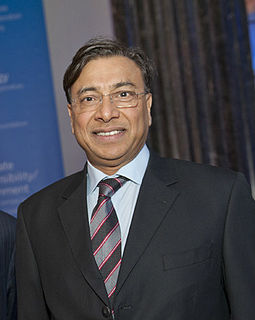A Quote by Philip Kotler
The CEO announces that the purpose of the firm is to improve the lives of the customers and the lives of the firm's stakeholders and the quality of the planet. The company will give fair compensation to all the stakeholders and the CEO will not earn more than 20 times the median income of his employees. He will want his employees to rate him, just as he also has to rate them.
Related Quotes
One of the best ways to make growth personal is to give employees a share in their firm, a real incentive to go the extra mile, more of a 'John Lewis Economy' if you like...We know that firms where employees are engaged and own a stake do at least as well as other companies in the good times and have performed even better in recent bad times. Expanding and recruiting at a much faster rate and achieving better productivity...So, why do they make up just 2% of our business landscape?
My role is really just to try to make sure that the voice of all shareholders and employees is heard - that no one is bullying their agenda, their choice of a CEO, or their selection of who should be the board members. Benchmark, I believe, has been pushing their agenda at the expense of those stakeholders.
Too often, executive compensation in the U.S. is ridiculously out of line with performance. That won't change, moreover, because the deck is stacked against investors when it comes to the CEO's pay. The upshot is that a mediocre-or-worse CEO - aided by his handpicked VP of human relations and a consultant from the ever-accommodating firm of Ratchet, Ratchet and Bingo - all too often receives gobs of money from an ill-designed compensation arrangement.
I recall a conversation with the CEO of large electrical equipment MNC in which he began by asking me to guess how many innovation centres his firm had around the world. My guess was nowhere near the 160 that turned out to be the answer. Not surprisingly this CEO recognized that his firm's ability to innovate was being hampered by the huge size of their footprint which brought few benefits as it was inefficient, there was duplication across sites and competition between them. In this and most other cases, the costs of the expanded footprint outweigh the benefits.
Always treat your employees exactly as you want them to treat your best customers. You can buy a person's hand, but you can't buy his heart; his heart is where his enthusiasm is. You can buy his back, but you can't buy his brain. That's where his creativity is. Treat employees as volunteers just as you treat customers as volunteers, because that's what they are. They volunteer the best parts - their hearts and minds.
What a fate: to be condemned to work for a firm where the slightest negligence at once gave rise to the gravest suspicion! Were all the employees nothing but a bunch of scoundrels, was there not among them one single loyal devoted man who, had he wasted only an hour or so of the firm's time in the morning, was so tormented by conscience as to be driven out of his mind and actually incapable of leaving his bed?
The current CEO of Wal-Mart says he has "no choice" but to sacrifice the welfare of his employees in order to serve his customers' need for low prices. So, why are they paying the guy millions a year if there is no possibility for him to change things? I think he is either kidding us or himself. The truth is more likely that he likes things the way they are, or he lacks the strategic imagination to come up with a viable and profitable ways to change them. If either is true, he is overpaid and probably not up to doing the job.

































